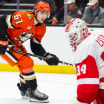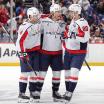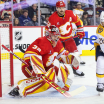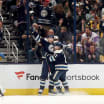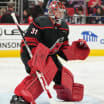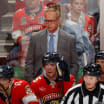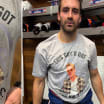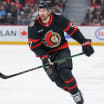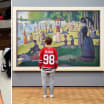Lightning's Stanley Cup title defense starts with safety protocols
Focus on coronavirus guidelines in bid to repeat in shortened season
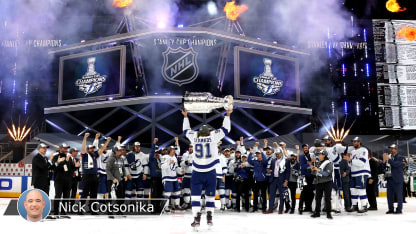
"Why is it so hard to win two championships] in a row?" the general manager said as the Tampa Bay Lightning opened training camp Sunday. "Because it's really, really hard to win one. It's incredibly hard to win one, and now you're trying to beat those odds two years in a row. It's a significant challenge."
That's in normal times. Tampa Bay will try to do it amid a pandemic.
***[RELATED: [Season preview: Tampa Bay Lightning]*
Last season, the Lightning won arguably the toughest championship in more than a century of NHL history. They waited more than four months after the season was paused March 12 due to concerns surrounding the coronavirus, then emerged from a unique 24-team tournament Aug. 1-Sept. 28.
This season will come with another set of challenges for all of the NHL's 31 teams.
"It's going to take a lot of discipline, from the players and the staff and their families," BriseBois said. "It's a big commitment. Our players did a phenomenal job last summer staying safe, following the protocol, limiting the exposure -- or the risk, I guess, of contracting [COVID-19] -- and it's going to be very different this year."
The 2020 postseason was played in a bubble.
The Lightning were restricted to the Secure Zone in Toronto for the Stanley Cup Qualifiers and first two rounds of the Stanley Cup Playoffs, then Edmonton for the Eastern Conference Final and Stanley Cup Final.
Everyone had to wear masks, physically distance, fill out health questionnaires, take temperature checks, have COVID-19 testing and more.
The bubble was a success. Out of 33,174 COVID-19 tests to team personnel across the NHL, zero came back positive.
But a bubble wasn't practical for a full season.
This time, everyone will be able to have contact with the outside world and go home to family. But that means each individual will be more responsible for following protocols at home, at the rink and on the road.
"We realize the magnitude of that," said forward Steven Stamkos, the captain. "It's going to be difficult, but the NHL, our teams, have done a great job of putting all these different protocols in place, and it's up to us as players to follow them."
The COVID-19 protocol is 54 pages and starts with basics like staying home, wearing masks and physically distancing. Everyone will be tested every day through at least the first four weeks of the season.
The travel protocol is 13 pages and includes transportation, dining and shopping restrictions.
"It's going to be very demanding for all of us, myself included," BriseBois said. "No indoor public spaces. No indoor restaurants. No having friends over for dinner. No going to someone's house for dinner.
"The meals seem to seem to be one of the big areas where the spread occurs, because your masks are off, obviously. You're potentially talking, so there's potential of spreading the disease that way. …
"Even coming to the rink is going to be different. More testing. More protocols. More masks. More social distancing. But that's the way of the world right now."
No. 1, it's the right thing to do. No. 2, success could depend on it.
The regular season will be 56 games instead of the usual 82. All games will be within the divisions, realigned temporarily because of restrictions at the Canada-United States border and to reduce travel. The top four teams in each division will make the playoffs.
That means every game will matter even more than usual, and that means COVID-19 could cause major problems from a hockey standpoint.
The positive test protocol is 13 pages and lays out scenarios for those who test positive or have been in close contact with someone who has tested positive.
The Lightning already will be without one of the best players in the NHL, forward Nikita Kucherov, for the regular season while he recovers from hip surgery. They parted with forward Cedric Paquette and defensemen Zach Bogosian, Braydon Coburn and Kevin Shattenkirk in the offseason
"It's very heightened in this shortened season," defenseman Ryan McDonagh said. "I think that's been the message from management and talking to players on our group, that if you get it, or you get on the exposure list even, you could potentially be missing four to eight games, and that's a huge chunk of this shortened season.
"I think our group's kind of taken that to heart, because we know the opportunity that we have this year."
Can you imagine the accomplishment of going back to back amid a pandemic?
"It's only a natural progression as we move forward and the vaccine comes out to kind of let your guard down, but we have to make sure we don't, especially these next few months," coach Jon Cooper said. "And I think part of that too was the feeling we had at the end of September. It was a hell of a feeling, and if we want to repeat that, we need the players we have on the ice."
